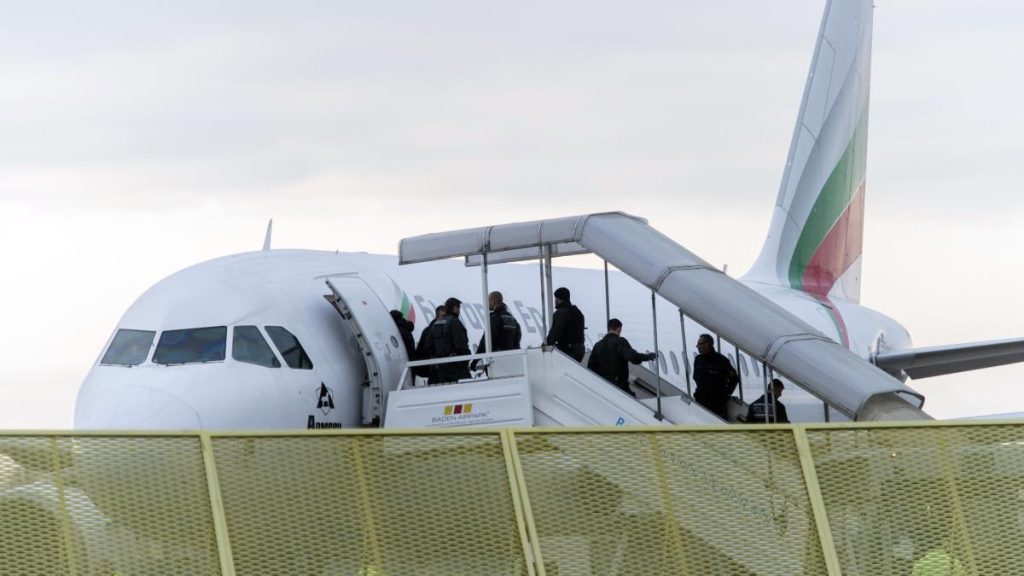The majority of attempted transfers of asylum seekers to other EU countries fail. In 2023, only around seven percent of transfers were successful, with more than 60,000 cases resulting in failure. The main reasons for these failures were that the receiving country did not accept the asylum seeker or the deadline had passed. Last year, German authorities were unable to return asylum seekers to the European country responsible for processing their application in the majority of cases. According to the German government’s response to a query from the Union faction, Germany submitted a total of 74,622 transfer requests under the Dublin rules in 2023. However, only 5,053 procedures ended with the departure of the individuals, representing just seven percent. The timely transfer failed in 38,682 cases, due to various reasons such as the receiving country canceling the transfer or a court decision prohibiting it. In 222 cases, a timely transfer failed due to resistance from the individual facing deportation. The other member state rejected the takeover in 22,462 cases for various reasons, and there were 1,008 cases where the Federal Office for Migration initiated a German asylum process on humanitarian grounds. It should be noted that not all cases for which transfer requests were made last year were completed by the end of the year. Transfers made in 2023 could be based on transfer requests from 2022.
According to the Dublin Regulation, another EU country is responsible for an asylum seeker if they have applied for protection there or entered first. Deportation must occur within six months. The deadline can only be extended in exceptional cases. After that, the asylum seeker falls under the jurisdiction of the Federal Republic of Germany. According to the German government, the majority of Dublin transfers last year were to Austria (1,534). Germany only transferred eleven asylum seekers to Italy out of a total of 15,479 transfer requests for the entire year. A spokesperson for the Federal Ministry of the Interior said on Saturday that the German government is in communication with the European Commission and other member states to achieve improvements in the implementation of the Dublin process. The failures of Dublin transfers and other requirements of the Common European Asylum System in recent years are a reason for the comprehensive reform planned. The European Parliament will vote this week on the changes, which include asylum assessments at the EU’s external borders for people from countries with low recognition rates.
This information highlights the challenges and shortcomings in the transfer of asylum seekers under the Dublin rules within the EU. Despite efforts by German authorities, the majority of transfer requests failed last year, raising concerns about the effectiveness of the system. The planned reforms aim to address these issues and improve the implementation of the Dublin process. Collaboration between the German government, the European Commission, and other member states is crucial in achieving these improvements. The reforms, which may include changes to asylum assessments at EU borders, are seen as necessary to ensure a more efficient and fair asylum system in Europe. By addressing the current shortcomings, the EU aims to create a more effective and harmonized approach to asylum processing and transfer within the bloc.
The high number of unsuccessful transfer requests last year underscores the challenges faced by EU countries in handling asylum cases under the Dublin Regulation. The reasons for these failures vary, from resistance from the individuals facing deportation to rejection by the receiving country. The limited success rate in transferring asylum seekers calls for a review of the current system and the need for reforms to address these shortcomings. Improving the efficiency and effectiveness of the Dublin process is crucial in ensuring a fair and timely asylum system in Europe. The upcoming vote in the European Parliament on proposed changes to the system signals a commitment to addressing these issues and making necessary improvements. It is essential for member states to work together and support these reforms to create a more efficient and transparent asylum process within the EU.


